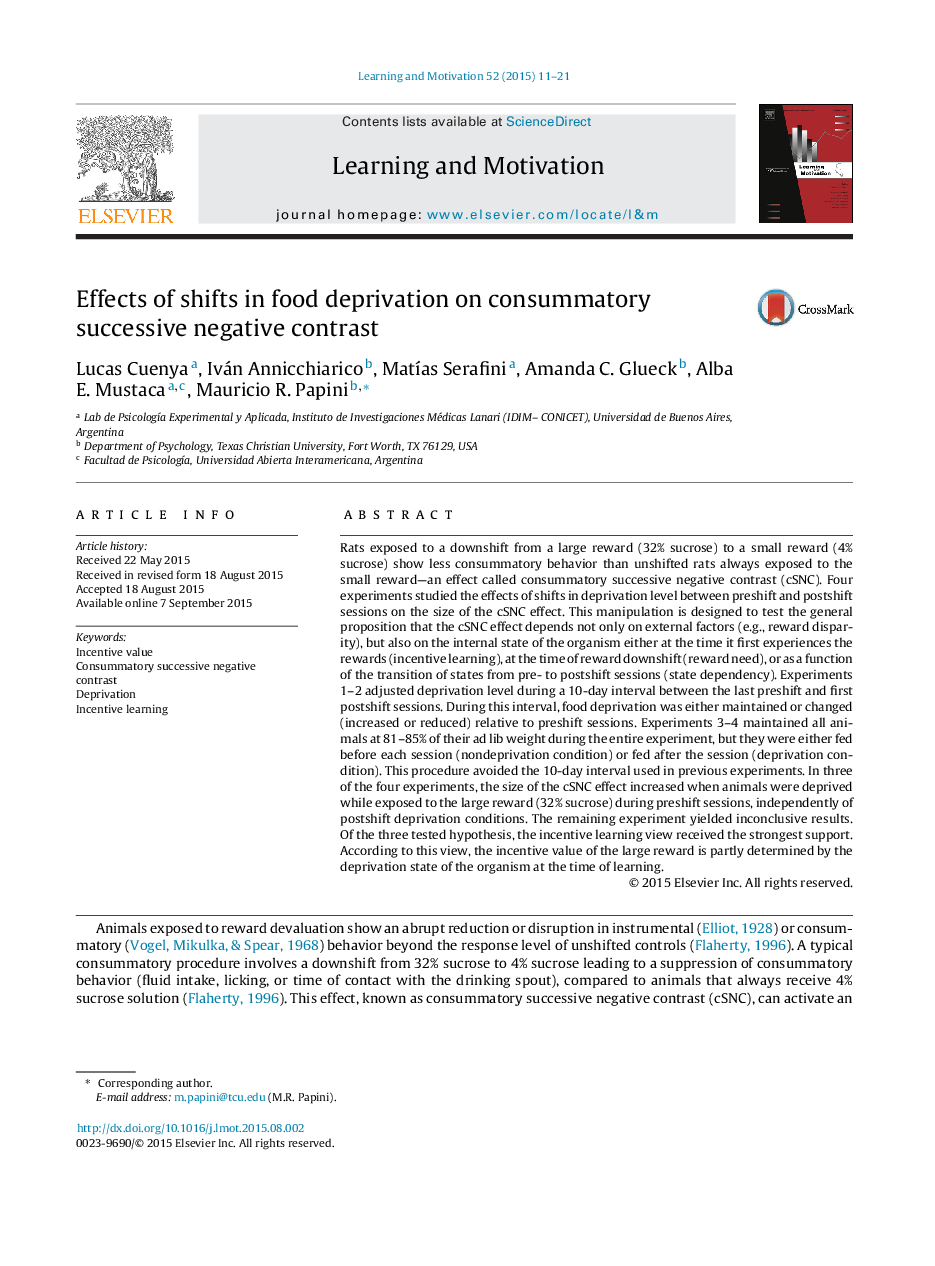| کد مقاله | کد نشریه | سال انتشار | مقاله انگلیسی | نسخه تمام متن |
|---|---|---|---|---|
| 918891 | 1473516 | 2015 | 11 صفحه PDF | دانلود رایگان |
Rats exposed to a downshift from a large reward (32% sucrose) to a small reward (4% sucrose) show less consummatory behavior than unshifted rats always exposed to the small reward—an effect called consummatory successive negative contrast (cSNC). Four experiments studied the effects of shifts in deprivation level between preshift and postshift sessions on the size of the cSNC effect. This manipulation is designed to test the general proposition that the cSNC effect depends not only on external factors (e.g., reward disparity), but also on the internal state of the organism either at the time it first experiences the rewards (incentive learning), at the time of reward downshift (reward need), or as a function of the transition of states from pre- to postshift sessions (state dependency). Experiments 1–2 adjusted deprivation level during a 10-day interval between the last preshift and first postshift sessions. During this interval, food deprivation was either maintained or changed (increased or reduced) relative to preshift sessions. Experiments 3–4 maintained all animals at 81–85% of their ad lib weight during the entire experiment, but they were either fed before each session (nondeprivation condition) or fed after the session (deprivation condition). This procedure avoided the 10-day interval used in previous experiments. In three of the four experiments, the size of the cSNC effect increased when animals were deprived while exposed to the large reward (32% sucrose) during preshift sessions, independently of postshift deprivation conditions. The remaining experiment yielded inconclusive results. Of the three tested hypothesis, the incentive learning view received the strongest support. According to this view, the incentive value of the large reward is partly determined by the deprivation state of the organism at the time of learning.
Journal: Learning and Motivation - Volume 52, November 2015, Pages 11–21
